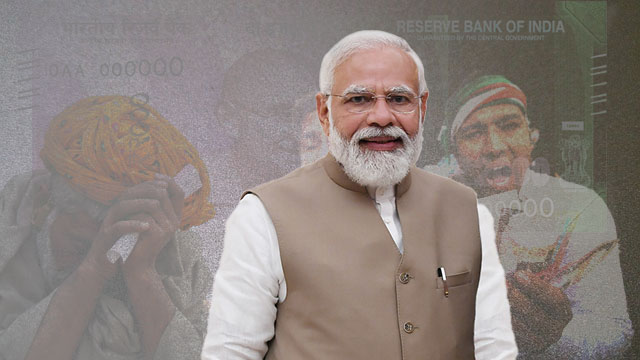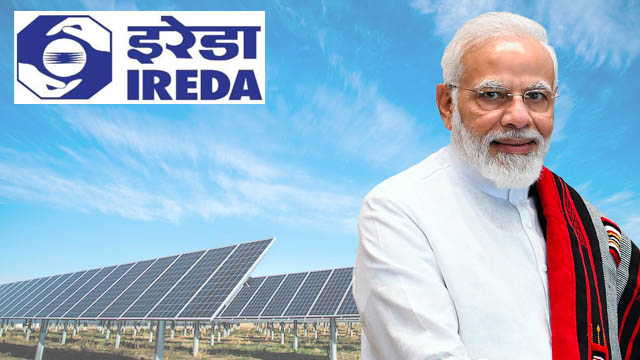After the Hindenburg Research saga, the Adani Enterprises, the port-to-power conglomerate owned by Gautam Adani, is once more under attack from western reports that accuse it of resorting to unfair stock price manipulation through unauthorised stock trading using shell outlets based in tax havens.
A recent finding by the Organised Crime and Corruption Reporting Project (OCCRP), led by the UK-based The Guardian and the Financial Times newspapers, has reportedly obtained paper trails that reveal the details of an undisclosed and complex offshore operation, which the Adani family has used to acquire stocks of the conglomerate discreetly.
The report alleged that the Adani family may have spent years discreetly acquiring stocks in the companies of the Adani Enterprises during its unprecedented rise to become one of India’s largest and most powerful businesses. The British dailies alleged, citing offshore financial records, that the transactions are worth hundreds of millions of dollars.
The new findings on the Adani Enterprises
The Guardian cited new documents the OCCRP has obtained and said they showed the details of an undisclosed and complex offshore operation in Mauritius for the first time.
The documents shared with The Guardian and the Financial Times showed Adani associates seemingly controlled the operation and supported the share prices of its group of companies from 2013 to 2018.
The Guardian noted that this offshore network remained impenetrable up until now. It added the records also appear to provide “compelling evidence” of the influential role Adani’s brother, Vinod Adani, allegedly played in the secretive offshore operations.
Adani Enterprises has maintained that Vinod Adani has “no role in the day-to-day affairs” of the company. However, Vinod had claimed that he has stakes in the company and is on the board, which makes him a crucial decision-maker for the conglomerate.
The new documents presented by the OCCRP showed two of Vinod’s close associates are named as sole beneficiaries of offshore companies through which the money appeared to flow. The Guardian reported that financial records and interviews also suggest investments into Adani stock from two Mauritius-based funds were overseen by a Dubai-based company, run by an employee allegedly close to Vinod.
It’s alleged that a trove of documents lays out a complex web of companies dating back to 2010 when Adani family associates Chang Chung-Ling and Nasser Ali Shaban Ahli began setting up offshore shell companies in Mauritius, the British Virgin Islands, and the UAE.
It added these financial records appear to show that four of the offshore companies Chang and Ahli, who have both been directors of Adani-linked companies, established sent hundreds of millions of dollars into a large investment fund in Bermuda called Global Opportunities Fund (GOF) with those monies invested in the Indian stock market from 2013 onwards.
The investment was made by introducing another layer of opacity. The report said that financial records paint a picture of money from the pair’s offshore companies flowing from GOF into two funds to which GOF subscribed: Emerging India Focus Funds (EIFF) and EM Resurgent Fund (EMRF).
“These funds then appear to have spent years acquiring shares in four Adani-listed companies: Adani Enterprises, Adani Ports and Special Economic Zone, Adani Power and, later, Adani Transmission”, the report added.
The report alleged that the records highlight how money in opaque offshore structures can flow secretly into the shares of publicly listed companies in India, bypassing its market regulations.
“The investment decisions of these two funds appeared to be made under the guidance of an investment advisory company controlled by a known employee and associate of Vinod Adani, based in Dubai”, it alleged.
EIFF appears to have held more than $190m of shares in three Adani entities in May 2014, while EMRF looks to have invested around two-thirds of its portfolio—worth $70m—in Adani stocks. Both funds appear to have used money that came solely from the companies controlled by Chang and Ahli.
“In September 2014, a separate set of financial records set out how the four Chang and Ahli offshore companies had invested about $260m in Adani shares via this structure”, The Guardian reported citing the paper trail.
The newspaper reported that the documents analysed by it show that this investment appeared to grow over the next three years: by March 2017, the Chang and Ahli offshore companies had invested $430m — 100% of their total portfolio — into Adani stocks.
While Chang declined to discuss the documents on his company’s suspicious investments in Adani shares with The Guardian, Vinod and Ahli didn’t respond to the British newspaper’s efforts to contact them for their counter-views.
The allegations against Adani
According to the report, the alleged offshore enterprises of the Adani associates raise questions about the possible breaching of Indian market rules that prevent stock manipulation and regulate public shareholdings of companies.
Indian market rules make it mandatory for a listed company to keep its 25% of shares “free float”, which means they are available for public trade on the stock exchange, while 75% can be held by promoters, who have declared their direct involvement or connection with the company.
It’s alleged by the British newspapers that Vinod has recently been acknowledged by the conglomerate as a promoter. But it cited records and said they show that at the peak of their investment, Ahli and Chang held between 8% and 13.5% of the free-floating shares of four Adani companies through EIFF and EMRF.
“If their holdings were classified as being controlled by Vinod Adani proxies, the Adani Group’s promoter holdings would have seemingly breached the 75% limit”, the report alleged.
The alleged impunity
The Guardian points a finger at the Indian market regulator Securities Exchange Board of India (SEBI) for going soft on Adani Enterprises.
“Yet a document unearthed by the OCCRP and seen by the Guardian suggests the SEBI, the government regulator now in charge of investigating the Adani Group, was made aware of stock market activity using Adani offshore funds as far back as early 2014”, the report said.
The report also cited a 2014 letter from Najib Shah, the then-head of the Directorate of Revenue Intelligence (DRI), India’s financial law enforcement agency, to Upendra Kumar Sinha, the then-head of the SEBI.
“There are indications that [Adani-linked] money may have found its way to stock markets in India as investment and disinvestment in the Adani Group”, Shah reportedly wrote in his letter to Sinha. He also reportedly noted that he had sent this material to Sinha because the SEBI was “understood to be investigating into the dealings of the Adani Group of companies in the stock market”.
Though the SEBI reportedly wanted to pursue the matter to its logical conclusion, the government regulator’s interest seemed to lapse after the Narendra Modi-led Bharatiya Janata Party (BJP) was voted to power months later in 2014.
Modi is accused of being close to Adani and his opponents allege that his BJP-led government is shielding the group from the law.
Critics, lawyers, journalists and the political opposition have questioned the ability of the SEBI, a regulator under the purview of the Modi government, to independently investigate the Adani Group.
The Indian Supreme Court set up an expert committee to investigate the Adani Group after the publication of Hindenburg Research’s report. According to a report given to the court in May, the SEBI had been investigating 13 offshore investors in the conglomerate since 2020 but had “hit a wall” in trying to establish if they were linked to the Adani Group.
Two of the entities under investigation are EIFF and EMRF. On Friday, August 25th, the SEBI submitted a report to the Supreme Court saying its investigations were in the final stages.
The Modi-Adani nexus
According to the findings, a fresh disclosure could have significant political implications for Modi, whose relationship with Gautam goes back 20 years. It added Modi has faced difficult questions about the nature of his partnership with Adani and allegations of preferential treatment of the Adani Enterprises since the Hindenburg Research report was published.
It’s alleged by Modi’s opponents that Gautam Adani’s wealth multiplied several times under Modi’s rule. After Modi’s ascension to power, Adani Enterprises’ market value rose from about $8bn in 2013 to $288bn by September 2022, before nose-diving in January-February 2023.
Gautam Adani was India’s richest and the world’s third wealthiest person worth over $120bn before New York-based short-seller Hindenburg Research’s report in January accused the conglomerate of pulling off the “largest con in corporate history”.
The investigative report accused Adani Enterprises of “brazen stock manipulation and accounting fraud”. It said opaque offshore companies bought the conglomerate shares and contributed to the “sky high” market valuation hitting a peak of $288bn in 2022.
Then, the conglomerate rejected the Hindenburg Research claims, calling them a “calculated attack on India”. The conglomerate said the firm’s report was an assault on “the independence, integrity, and quality of Indian institutions”.
Although both Gautam and his conglomerate played the nationalist card to shield themselves after the Hindenburg Research report was published, it initially wiped $100bn off the conglomerate’s market value. Gautam Adani also lost his spot on the world’s richest people’s list.
Now, as the new reports emerged, Adani Enterprises has rubbished the allegations, like its reaction to Hindenburg Research’s findings. “Our response to the Hindenburg report is available on our website. Suffice it to state that there is neither any truth to nor any basis for making any of the said allegations against the Adani Group and its promoters and we expressly reject all of them”, The Guardian quoted the group as saying.
The BJP has slyly accused the western forces of using the mainstream media to launch an attack on India and interfere in the general elections scheduled next year. India’s opposition parties have also amplified their attacks against the BJP government using the new findings.







